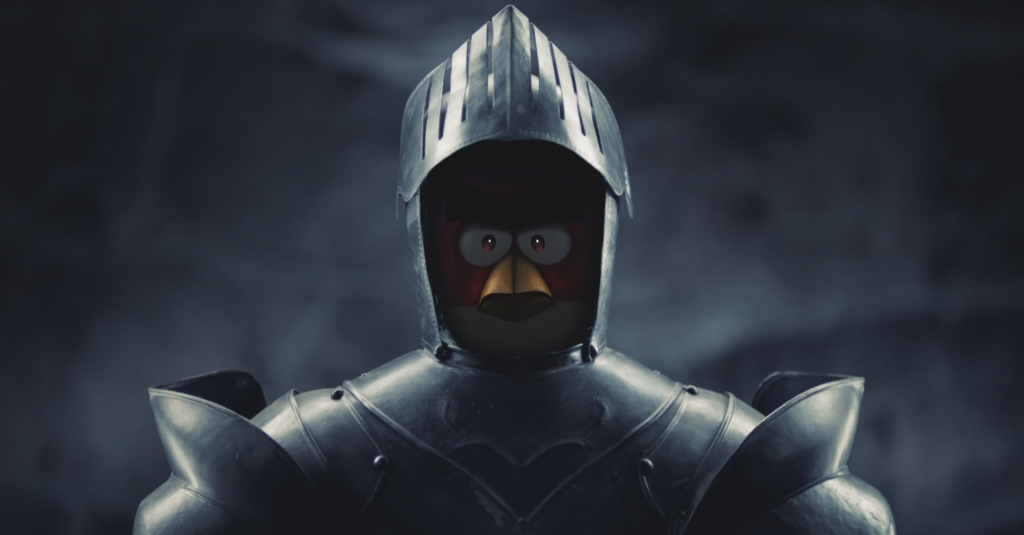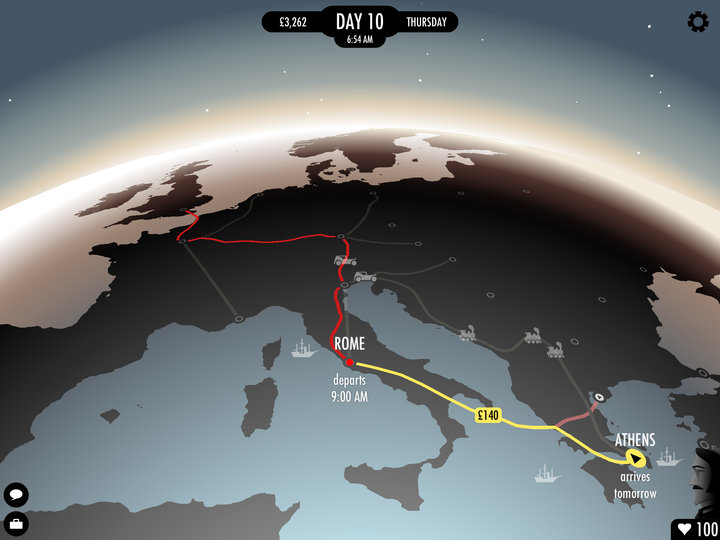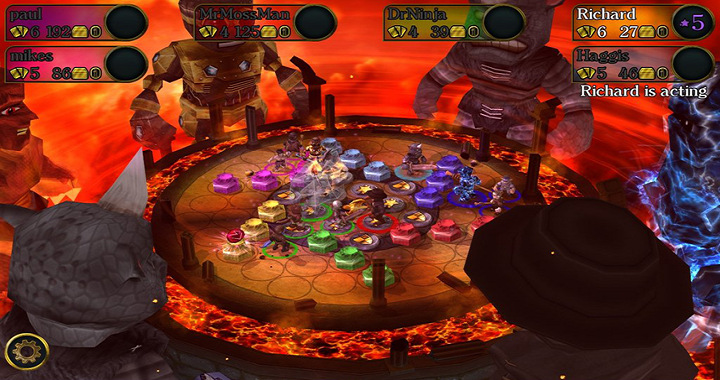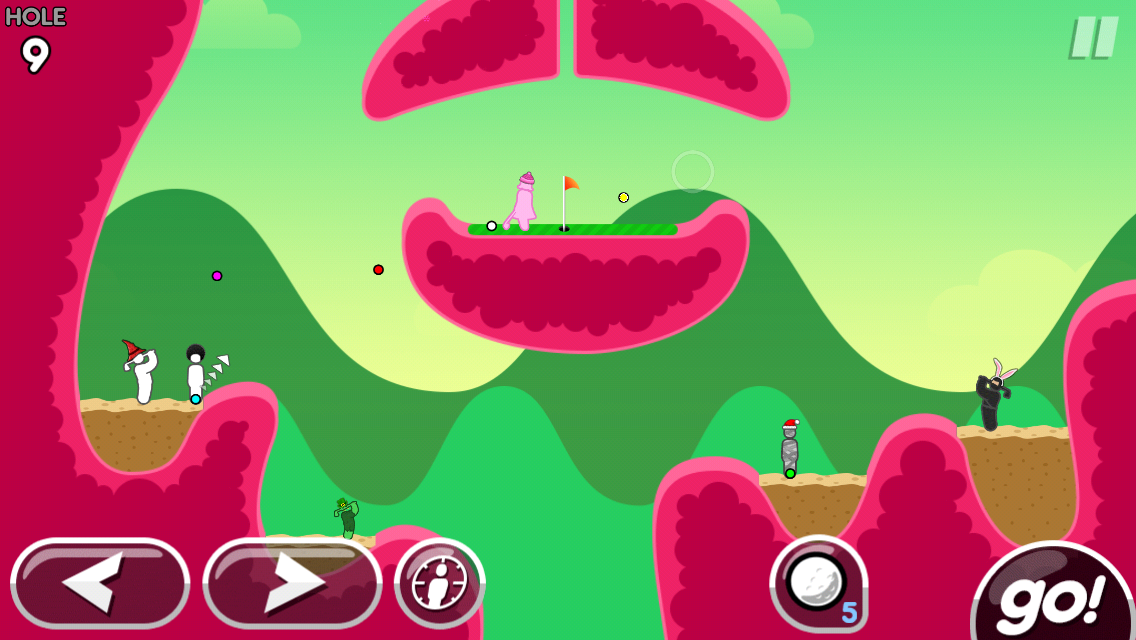Mobile App PR: You're doing it wrong
How to properly promote a mobile game with the help of PR, – said Janel Torkington, head of the content department of App Store, and SoftPressRelease PR agency translated her story for App2Top.ru into Russian.
When it comes to PR, all mobile indie developers are very similar in one thing: they do it wrong.
There are over 1.2 million apps in the Play Store alone, and developers release hundreds of them every day. The vast majority of them sink to the bottom of this ocean, where they remain to rot.
Free indie developers are often excellent artists and programmers who know absolutely nothing about self-promotion. Their PR efforts are dispersed, fragmented or, worse, absent altogether.
You are not Rovio (art Angry Birds: Epic)
You are not Rovio. If your PR strategy consists of “create something and they will come,” then you should think carefully again.
Since I work in the App Store, one of my tasks is to select the best of the latest releases. The use of the tools provided by the store (developer description, icon, screenshots, name) is mandatory, however, does not apply to the development of a comprehensive PR strategy in order to convince relevant users to download the application.
- When should developers start promoting a mobile app? What steps can they take?
- Are independent PR people better suited to the needs of indie developers?
- What do talented, but not burdened with a large budget developers need to know about PR?
To find out the answers to these questions, I turned to the three wizards of mobile PR:
Luis Levy from Novy, who left a giant, well-known PR company to work exclusively with indie developers.
Ryan Holowaty from Noodlecake is an independent game studio that also ports and publishes games.
Emily Morganti, who previously worked for Telltale, has now retrained as a freelance PR consultant, which she has been for the last five years.
By the way, I’m not connected with these people in any way, I just respect them a lot. I’ve seen them work wonders with indie mobile app developers.
80 Days
When should developers start promoting a mobile app? What steps can they take?
Emily Morganti: Here’s a rough plan that I recommend for running an iOS game:
Somewhere 2-6 months before the release, you need to inform about the upcoming release of the application. Create a preview version that can be sent to the press via TestFlight. Think: “Would it be convenient for me to show this version to a journalist who is interested in my game?” When the answer is “yes”, then it will be time to notify the press about the existence of your game.
- Follow any posts about your app and start making a list of people/sites that have written about you. Do not think that they will remember your game or will follow its development.
- Actively get in touch with people and sites from which you want to get a publication about your game. This list includes people who have previously written about similar games, as well as people who write about indie games or games of a specific genre. In addition, contact the mobile sites PocketGamer, App Store, Touch Arcade, AppSpy, Pocket-Lint, PadGadget, Modojo, PocketTactics, etc. This can be done from time to time for several months in parallel with the development of the game. Do not be discouraged if it seems to you that there is no return at first, but keep the contact details for further announcements. Sometimes it takes more than one letter to get someone’s attention.
- When you are almost ready to send the app to Apple, start preparing for the release PR. This is a good time for a “big announcement” that will help you get the press interested in getting copies of the game to write reviews.
- After your game passes moderation, there is no need to rush to launch. This is extremely important, and, in my opinion, this is where many developers make mistakes. Hold the release in iTunesConnect and start sending promo codes to everyone who expressed interest in writing a review of your game, as well as to large mobile sites and prospective contacts who did not respond initially. When you send out letters, let’s make it clear for what purpose you are doing this, especially if this is your first letter (for example: “My game is launching in two weeks, and I thought you might want to write a review on it, since it is similar to [another game that was reviewed on site X].”)
- Around this time, you need to announce the release date of the game. Ask the reviewers to hold off publishing their reviews until this date (this way, all published reviews will be concentrated in the period of time when people will be able to buy your game). However, if someone is really impatient to write about your game, there is no need to prevent this – you can offer them to make a preview, answer their questions by email and Skype, send them previously unpublished screenshots or videos, etc. Depending on the game, it is worth taking 1-2 weeks to this stage (possibly more if you have difficulties with generating interest).
- On the launch day, announce the release of your game in the AppStore with a press release that includes detailed information about the game, the cost, links to the game’s page in the store and screenshots / trailers that the press will be able to add to new posts. Send this announcement to the contact list that you collected before, as well as to GamesPress and sites writing about mobile games. prMac is an inexpensive service that you can use in addition to mailing, but it will not replace the contact list that you have compiled.
- After the launch, follow the publications and thank the people who publish reviews (even if the reviews are negative – never come into conflict with the reviewer!). If you are friendly and easy to work with, then they will remember this when they write about your next game. A couple of weeks after the launch, you can write to those who have been sent promo codes, but who have not published anything about the game, to find out if they plan to write about it.
To summarize: the time interval around the release is *extremely* important. Although, from my point of view, some preparatory dialogue during development is important, however, these efforts will not have a clear result until your application is available for purchase. This is especially true for mobile games – competition is strong, and people have short attention span. Personally, I think that instead of rushing, it is better to hold off on the release of the finished application until sufficient interest is warmed up.
The desire of developers to publish their game as soon as it is ready is quite understandable, but if a tree falls in the forest and there is no one around to hear it, then you are foolishly missing the most obvious PR opportunity.
Combat Monsters
Are independent PR people better suited to the needs of indie developers?
Louis Levy: My partner (Jenny Novak) and I founded Novy in May 2011 to work exclusively with indie developers of applications for both mobile devices and PCs and consoles (I left a fairly well-known PR company for this purpose). We wanted to charge less than large PR companies… but give more.
The truth is that indie developers should be willing to spend at least $6,000 on a small or medium-sized PR firm – and this is quite a large sum. Since we are “indie” ourselves, a PR firm, technologies and a small staff help us to reduce costs and, as a result, provide services at more affordable prices.
In addition to sparing prices, small PR firms and freelancers pay more attention to indie developers than large companies. The truth is that big companies often appoint interns or less experienced employees to work with indie developers, because management cannot justify the time spent on servicing a client who does not pay a lot of money. What is the result? A PR campaign often loses as a result to other campaigns of the same company.
At Novy, my partner and I work very closely with each client. Moreover, we have also recently started providing development and production advice to clients who are not quite ready for a PR campaign; perhaps their games lack the finishing touches – or they are still in the pre–production phase, and they need advice from people with a lot of background knowledge in the field of game development, starting from game design and interface design and ending with production and quality control.
Summing up the above, I note that a small company such as Novy – or a talented freelancer – is definitely the best option for an indie developer!
Emily Morganti: I didn’t study PR at university; I figured out how to do it all myself, first doing marketing and community management for Telltale (which eventually made me their PR representative in the early years of the company), and then working as a consultant for the last five years. If I can do it, then so can an indie developer.
Of course, a professional PR person is in a better position than an indie developer who has never done PR before. The PR person knows what will work and what won’t, knows how to write a press release or pitch letter, who to contact and when, etc. It’s a job, and whoever earns it for a living should theoretically do it well. However, lack of budget should never stand between an indie developer and a PR campaign.
If you can’t afford to hire someone (or don’t want to!), then what you do yourself is always better than nothing.
If you are planning to hire someone to help you with PR, I think the most important thing is to find someone with whom you have a good understanding and who is interested in your game. Adventure games are my niche — I love to play them, I enthusiastically tell the press about them, so the journalists I usually work with are used to receiving news from me about such games. That’s why I’d rather work with an adventure game than a game of another genre, and that’s probably why the adventure games I work with get good media coverage. (Of course, the quality of the game is also important! The best PR in the world cannot make a good game out of a bad one).
So if you’re going to pay someone for PR, you’d better choose someone who is as enthusiastic about your game as you are (or at least *very*good at pretending to be). And it is also important to find someone with whom you like to communicate and whom you trust, because there is no guaranteed formula in PR, and what you think should work does not always work.
You and your PR representative (whether he is a person or a company) should be able to build a strategy, discuss what works, and what else you can try, etc. Remember that no matter who you hired, they can put a lot of effort and still not get a good result, or moreover, get an excellent result, which will not affect the salesability of the game in any way. Don’t expect too much and don’t spend huge amounts of money that you don’t have.
Super Stickman Golf 2
What general advice would you give to independent talented developers?
Ryan Holovati:
- Don’t be a robot. Make your emails, messages and marketing personalized.
- Find your players and talk to them. Do not be idle, thinking that “the game will speak for itself.” This works extremely rarely. Spur interest in the game.
- Form relationships with influential people, whether they are other game developers or representatives of the press. For example, visit GDC, find the editors of several gaming sites and say hello to them (or have a beer). Their job is to write about games, so those who refuse to talk to you are not worth your efforts.
- Don’t be afraid of failure. When the games that [Noodlecake] releases don’t shine, we learn from mistakes and move on. The longer you work this way, the more famous your brand can become, and the more followers it will have. Although we are famous now, it wasn’t always like that.
Louis Levy:
- Create the best game and period — without haste and hack work.
- Start marketing at least two months before the launch and hire a PR company or an independent PR person a month before the launch.
- Make sure that the game studio and the game have their own pages and accounts on Facebook, Twitter, Google and even LinkedIn.
- Create a Reddit account and learn how to use it. You can’t sit still for three years and not publish anything.
- Respond to press letters within 24 hours. It’s good when you are known as a person with whom you can easily and quickly get in touch. Respond to emails from your PR firm/freelancer as quickly as humanly possible. If you delay with the answer for a few days, you will actually harm your own game.
- Allocate some amount for PR. At least set aside a few thousand dollars (at least $3,000). Most PR firms do not work for a percentage of income or for free.
- Create high-quality content. Outstanding trailers and screenshots can be a decisive factor in deciding whether to publish the news.
A source: http://blog.appszoom.com/course-guide-mobileapp-pr
You will be able to learn about the latest trends in the gaming industry first-hand, personally meet and discuss working issues with leading companies in the game development and publishing market at White Nights Moscow 2015, which will be held on October 13-14.




